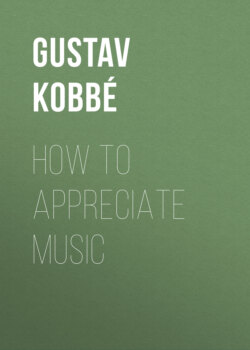Читать книгу How to Appreciate Music - Gustav Kobbé - Страница 4
На сайте Литреса книга снята с продажи.
The King of Instruments.
Оглавление“In households where there is no pianoforte we seem to breathe a foreign atmosphere,” says Oscar Bie, in his history of the instrument and its players; and he adds with perfect truth that it has become an essential part of our life, giving its form to our whole musical culture and stamping its characteristics upon our whole conception of music. Surely out of every ten musical persons, layman or professional, at least nine almost invariably have received their first introduction to music through the pianoforte and have derived the greater part of their musical knowledge from it. Even composers like Wagner and Meyerbeer, whose work is wholly associated with opera, had their first lessons in music on the pianoforte, and Meyerbeer achieved 31 brilliant triumphs as a concert pianist before he turned his attention to the operatic stage.
Of all musical instruments the pianoforte is the most intimate and at the same time the most public—“the favorite of the lonely mourner and of the solitary soul whose joy seeks expression” and the tie that unites the circle of family and friends. Yet it also thrills the great audience of the concert hall and rouses it to the highest pitch of enthusiasm. It is the king of instruments, and the reason for its supremacy is not far to seek. Weitzmann, the author of the first comprehensive account of the pianoforte and its literature, speaks of its ability “to lend living expression to all phases of emotion for which language lacks words”; its full, resonant tone; its volume vying with that of the orchestra; its command of every shade of sound from the gentlest pianissimo to the most powerful forte; and its mechanism, which permits of the most rapid runs and passages, and at the same time of sustained singing notes and phrases.
